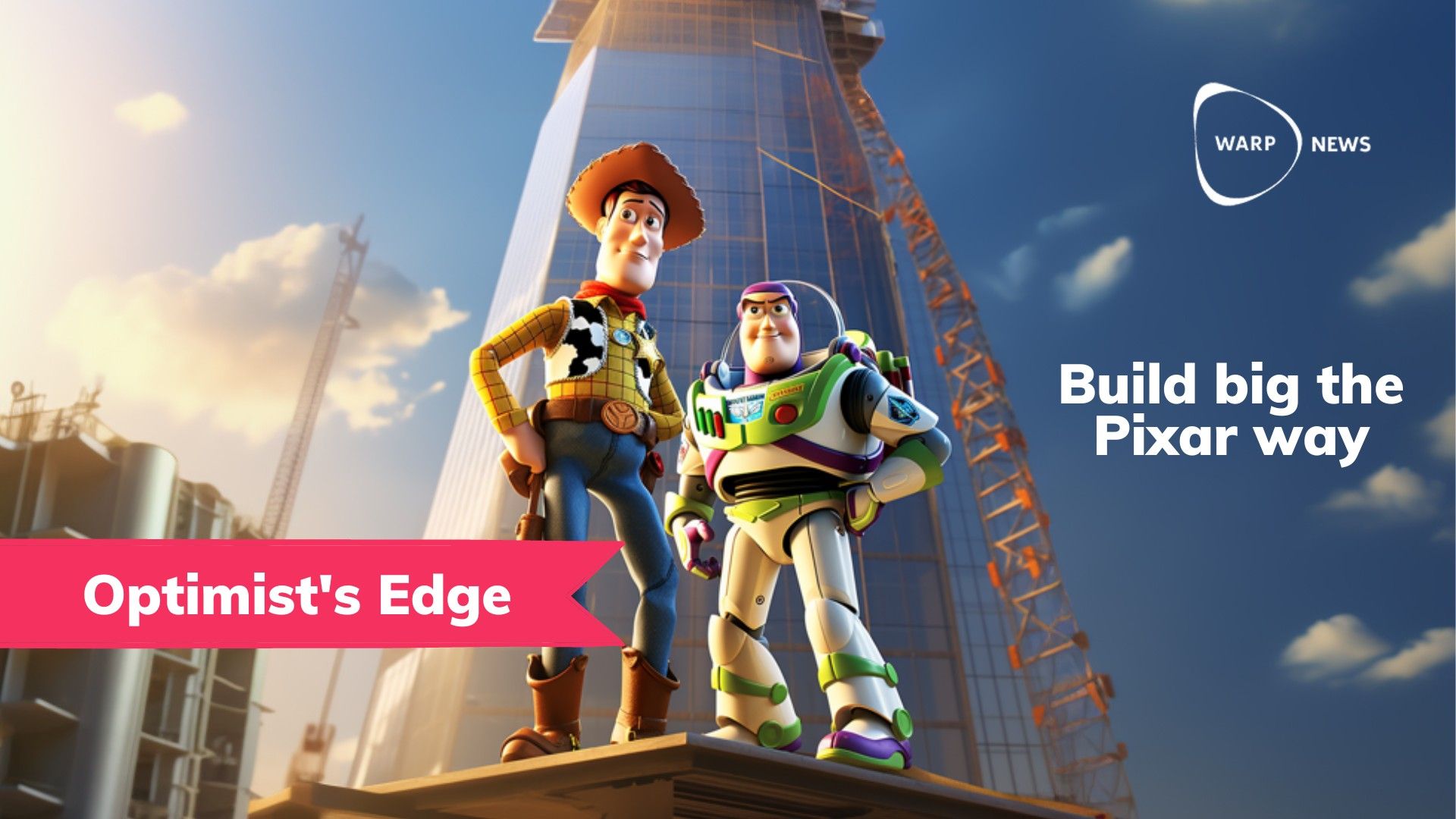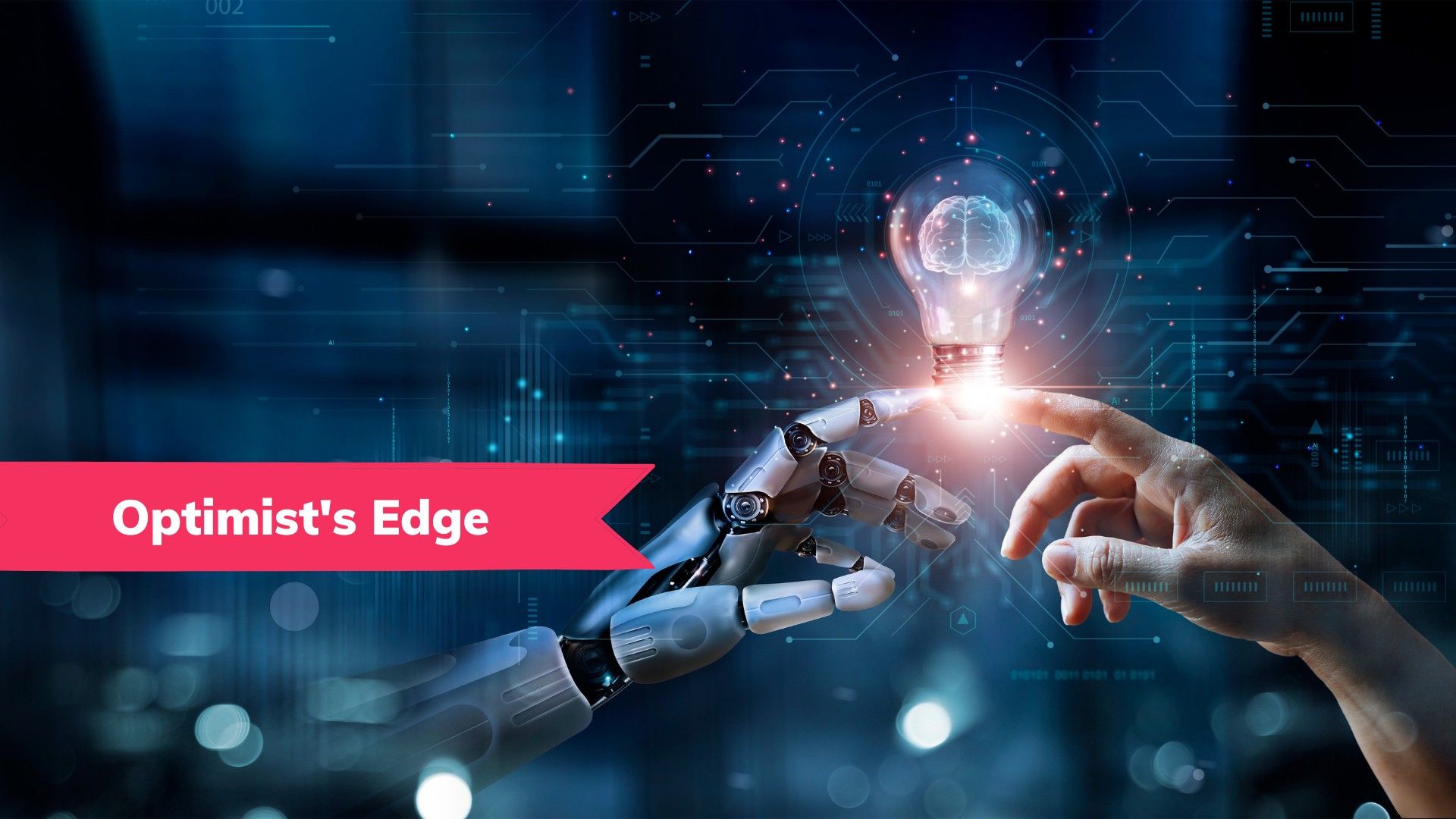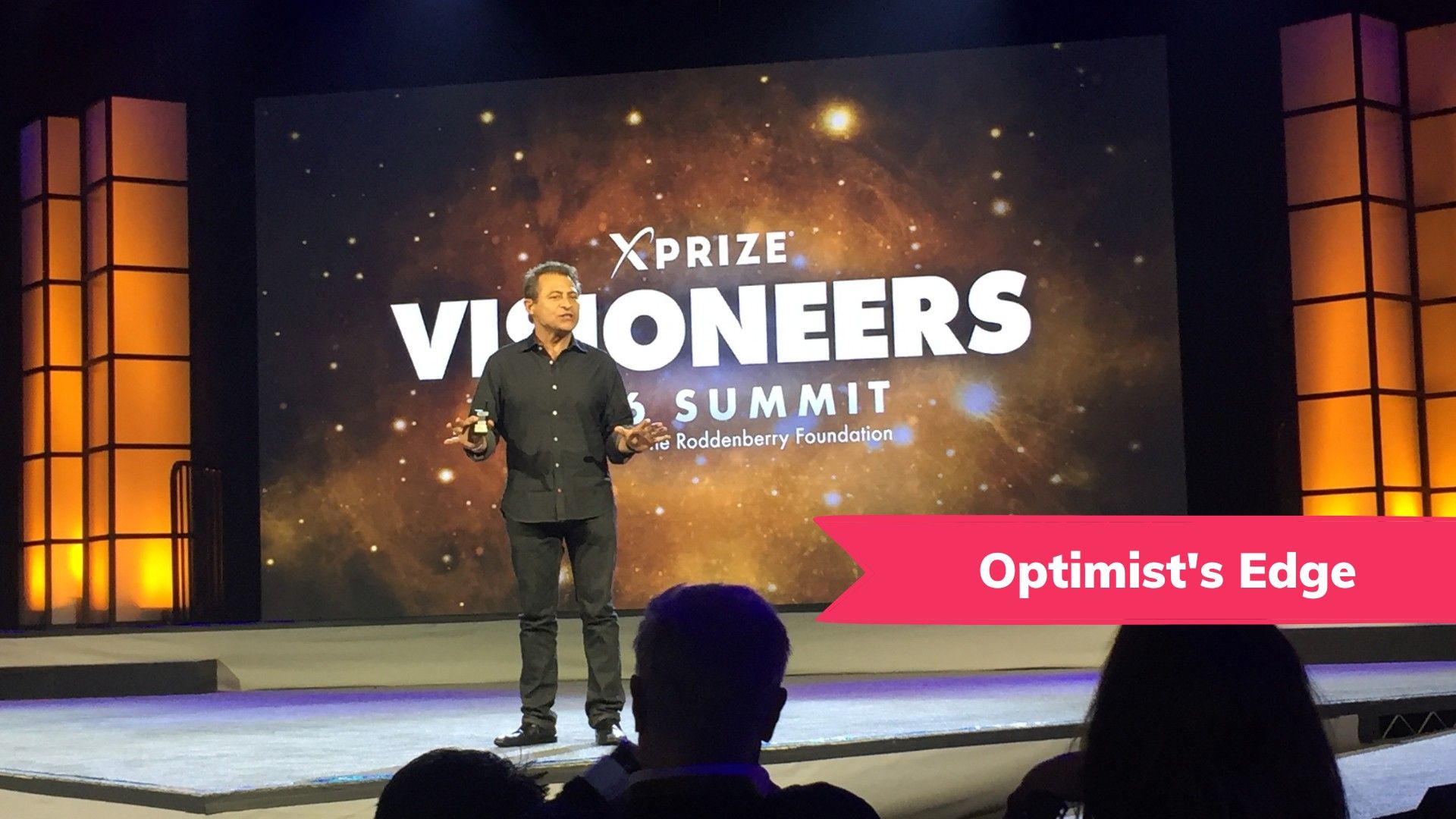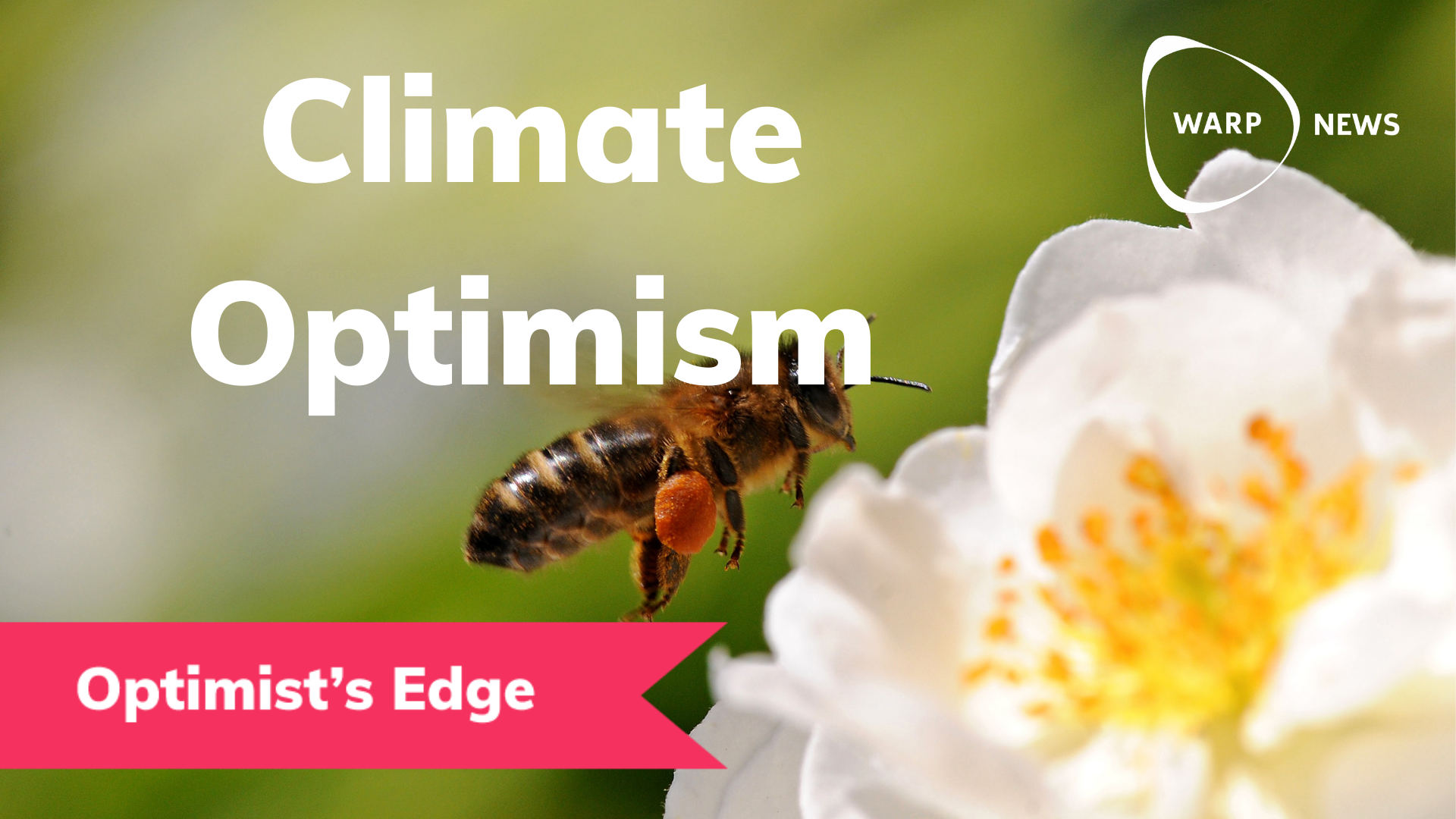
💡 Optimist’s Edge: You may be less of a climate villain than you think
Could climate anxiety be on the decline? According to a recent survey, most people believe that they live a sustainable life.
Share this story!
📉 What people think
Don't eat meat. Don't buy new goods. Don't travel by air. Or better yet: don't travel at all. If you truly want to be kind to the environment, it would seem as if most of everyday life is a threat to the survival of our planet. What we must ask ourselves is how sustainable an attitude like that is?
In a recent survey, Warp asked: Do you think you live a climate-friendly or climate-damaging life?
63 percent answer that they live a climate-friendly life while 37 percent answer that they live a climate-damaging life.
Even though just over 6 out of 10 answer that they live a climate-friendly life, almost 4 out of 10 believe they live a climate-damaging life.
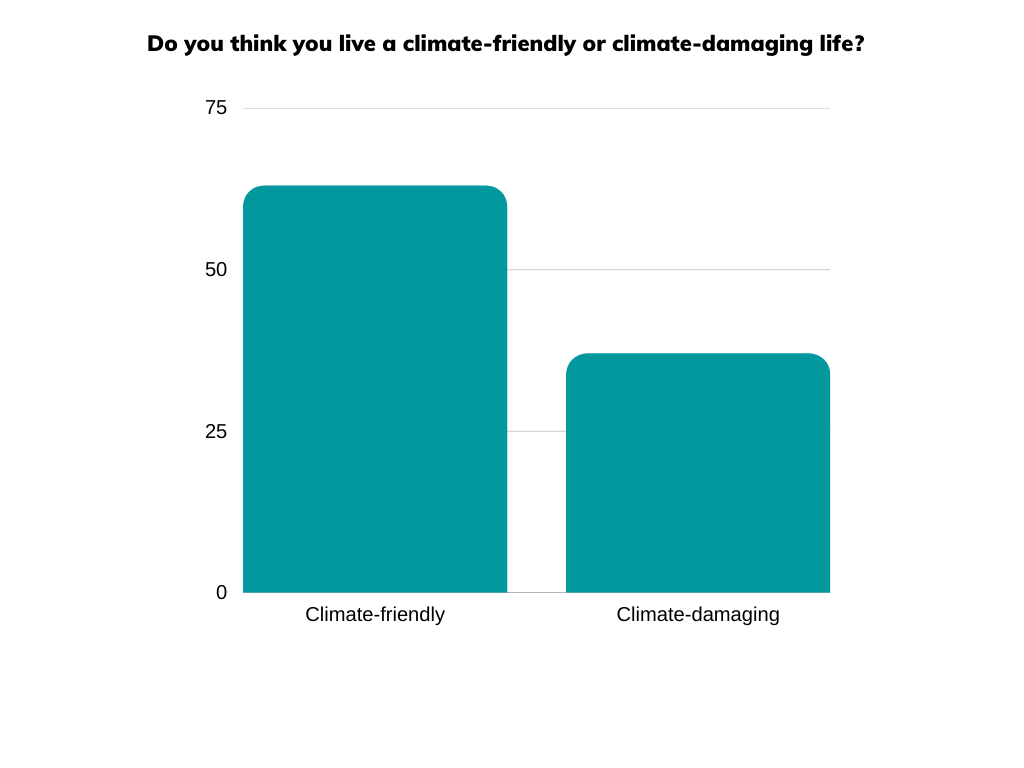
📈 Here are the facts
However, making the right choices doesn't have to be that challenging. You might even be less of an environmental villain than you think.
It has never been easier to do the right thing than it is today.
To begin with, it is relatively easy to get an overview of how significant your own impact on the planet is:
- Get informed. To make an estimate of your climate footprint, you can use The Climate Account, developed by the Swedish Environmental Institute, or WWF's climate calculator.
- Vote with your feet. Ambitious adaptations and a structured approach characterize most organizations' work on the climate issue today. Never before has as much consideration been put on environmental issues as today. As consumers, we all can choose alternatives that have a policy and consideration in line with our values and opt-out of those who do not take responsibility.
💡 Optimist's Edge
With a lessened sense of guilt, less emotional value, and more of a fact-based foundation, it becomes easier to do the right thing and change our behavior positively - for the climate as a whole - and the individual.
And as we move away from a shameful and guilt-ridden debate about how humans are destroying the earth to a conversation about how we can combine growth and environmental benefits, the need for an infrastructure that supports this development becomes even more significant.
💡 Using better technical aids that support individuals such as consumers and users with everything from purchasing to the use and decommissioning of products and services, more people can make smarter individualized, and more well-informed choices in everyday life.

👇 How to get an Optimist’s Edge
There are many examples of small things that you can do in everyday life that align with the best for the environment.
Instead of opting out or giving up on things for the environment, choose carefully and think long-term.
❓ So how do you benefit from this knowledge?
- Do not give up the car - but adapt your driving style. Instead of parking the car completely. Choose a smarter route. In addition to carpools and sharing means of transport, traveling more by public transport, you can drive more energy-efficiently. According to Energirådgivningen.se: "Many people can reduce fuel consumption by 5 to 15 percent by planning their driving". It may not sound like much at the individual level, but if a more significant proportion of motorists reduced consumption, the overall effect would be pretty substantial.
- Switch to an electric car. Electric cars are already cheaper than equivalent fossil cars and will soon also be cheaper to buy. And, of course, they are better for the environment.
- Use technology. Use the available technology to measure and evaluate behaviors and actions and understand what a difference the small individual contributions can mean in practice.
- Plan. Prepare your purchases and consumption. We buy more and more, for example during the last twenty years we have consumed an average of four kg more textiles per person.
- Quality before quantity. Whether it is essentials like food or entertainment products, choosing quality will often be a better choice than going for more for less.
- Recycle. More organizations and institutions are taking steps towards a circular economy. More creative brains will be needed to contribute to the realization.
- Compensate more. Climate compensation, i.e., paying for the emissions you cause, is described as the final alternative - it is, therefore, better to avoid contributing to unnecessary emissions in the first place.
The Swedish Environmental Protection Agency describes climate compensation: “It is always better to avoid causing emissions if you want to reduce your climate impact. But if that's not possible, you can climate-compensate. Climate compensation means that you pay for a reduction in a specified amount of emissions elsewhere or that the amount of emissions is taken up in forests and land. This allows you to compensate for the emissions from, for example, a flight or your entire lifestyle. Or why not give it away as a gift! ”
- Embrace the new digital work life. A change that could be advantageous for the environment is how the proportion of remote work increased during the pandemic. It was as if the "tap was opened" when much of the digital infrastructure suddenly began to be used as intended.
Working close to home can be seen as a climate-friendly lifestyle and should be considered a sustainable act - perhaps even rewarded to some extent?
- Develop new technology. Participate in developing the next generation of tools that make it easier for the individual to create a good picture of what they can do to live in line with their values.
While there are a lot of advanced tools for companies and institutions to use, such as those offered by tech giant AWS, there is still room to sharpen and develop technology that makes it easier for private individuals to gain better control.
You now have an advantage because you have gained this knowledge before most others - what will you do with your Optimist's Edge?
❓ Do you want more? Discuss with others in our forum!
Share your ideas and thoughts with other Premium Supporters in our Facebook group. Maybe you will find a prospective business partner or investor.
By becoming a premium supporter, you help in the creation and sharing of fact-based optimistic news all over the world.
